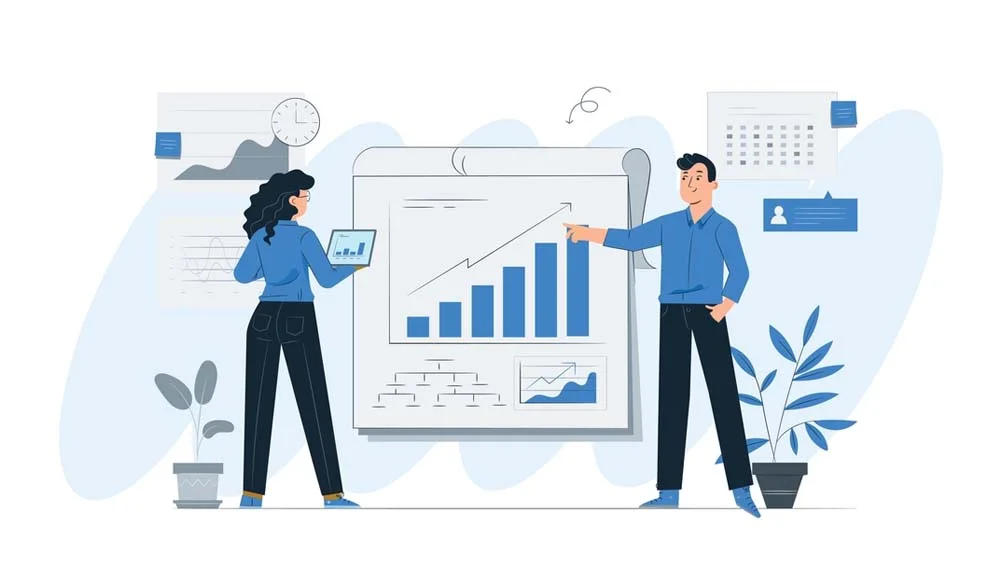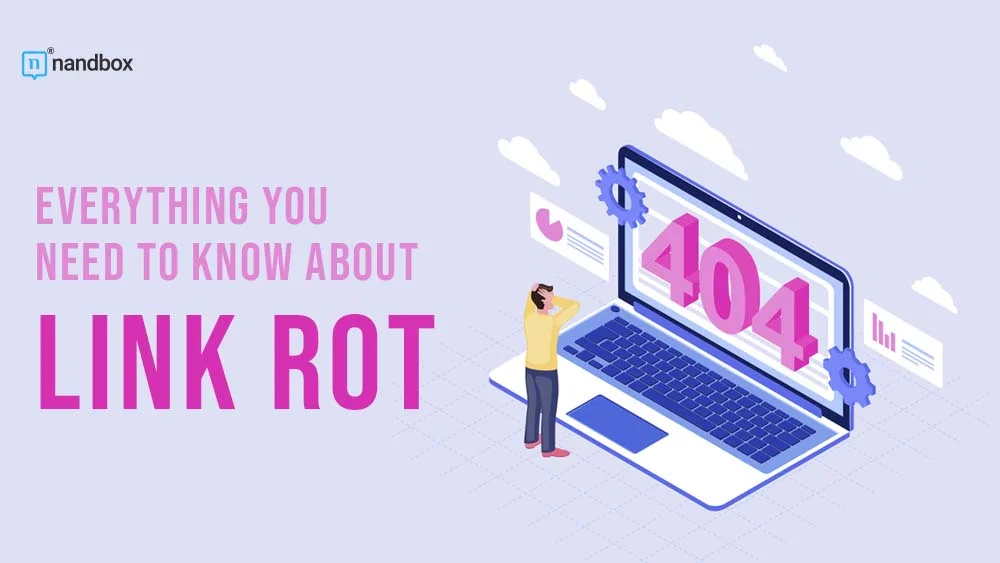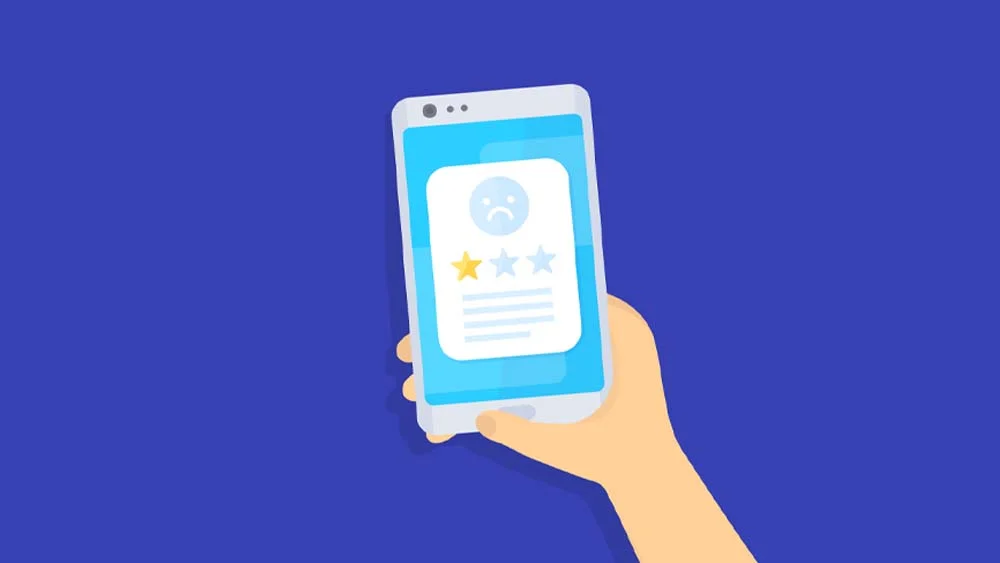Exploring Link Rot: Everything You Need to Know
The vast world of the internet is dynamic and ever-evolving, always giving us more than we need. We usually find all the answers to our questions here, whether from people like us on forums or content creators writing articles like the one you are reading now. Users can spend hours and hours lost in the world of knowledge and information in a one-of-a-kind experience where one article or piece leads to the next seamlessly. But what if I told you that there is one thing that can compromise this experience for users as well as website owners? This thing or occurrence is link rot. In this article, we delve deep into the apparently major world of Link Rot, unraveling its causes, consequences, and strategies to combat this decay to help optimize and improve your website.
What Is Link Rot?
Usually, rot means decaying or dying. And as names imply meaning, that is exactly what link rot means. Link rot is the decaying or fading of links in the big, big world of the internet. Simply put, you can say that the link just breaks, creating a dead end for users where it leads nowhere. Link rot is not something that websites can run from, it is something that shall happen sooner or later. This is due to the dynamic nature of the internet, where people generate each day millions of links, so they overstep the older links. This loop happens daily and will mostly continue forever until the last day the internet exists.
Link rot is generally one of two things: the first is the removal and disappearance of links due to some ongoing updates. And the second thing is that a link loses its shine and equity compared to other links that came after it as it becomes old and hard to discover.
Link rot or dead links usually show error 404 messages, similar to the ones associated with broken links. That is because broken links are a part of link rot. And usually, to be called a link rot, a page has to have more than one broken link.
The Reasons Behind Link Rot
There are many reasons behind the occurrence of link rot, so let us explore a few that you should keep an eye on.
The first, very common reason is content updates and removal. As websites are always on the move and being updated, some pitfalls can happen here and there. The moment content is updated or removed, all hyperlinks referring to it will break. Whenever a user tries to access this link, it will lead nowhere
The next reason is modification in structure or URLs. One of the SEO strategies is to make constant modifications to the websites. These modifications include redesigning the website, changing the URL structure, and many more. Upon applying such alterations, especially to the URL structure, the link would be useless and rotten as it would lead to an unfound destination.
Sometimes, websites can get abandoned and dumped by owners and users. Therefore, they become inactive. But what you didn’t know is that the inactivity of a website can lead to its cessation after some time. So, logically, any link that includes an expired domain is a broken and dead link.
Lastly, link rot can be something completely out of anyone’s hands. As sometimes they can occur due to server failures. These server failures include technical issues like downtime and crashes that can make websites temporarily or permanently unavailable. And this, of course, will lead to a dead link.
How Link Rot Affects SEO and Website Traffic Negatively?
Poor User Experience
The user experience of a website suffers when visitors encounter broken links. Users may have the impression that the site is unreliable or out of service, leading to higher bounce rates and lower levels of user engagement. Bounce rates as well as poor engagement can hurt a website’s SEO rankings because search engines like Google consider user experience significantly when determining page rankings.
Reduced Crawl Efficiency
Crawlers from search engines frequently visit websites in an effort to find and index fresh content. Users can hinder crawling when they come across broken links. It may take longer for crawlers to index the site’s valid and important material if they have to waste time trying to access non-existent pages. This can have a severe impact on SEO because of inadequate indexing.
Lost Link Equity
Any value that may have been passed on to the destination page as a result of the link being broken or not working is wasted. This prevents the destination page from receiving the SEO advantages associated with incoming backlinks, such as increased authority and a possible ranking boost.
Negative Indications to Search Engines
When link rot occurs frequently and isn’t fixed quickly, it sends a bad signal to search engines. This may be an indication that the website is not being adequately maintained, and that old or irrelevant information is not being removed. The SEO rankings could be negatively impacted if search engines see a lack of high-quality content and relevance.
Impacts on Backlinks
Damage to your website’s credibility and status might result from link rot on pages that have been referenced by other websites. If other websites consistently experience broken links to yours, they may choose to remove or disavow those links, damaging your backlink profile and, by consequence, your search engine rankings.
Decreased User Trust and Authority
Your site’s credibility and authority may suffer if your links deteriorate and vanish over time. There’s a chance users won’t interact with your content since they’re unwilling to click on links because they’ve had a bad experience with it before. The trustworthiness and authority of your site may suffer as a result, which are two qualities that are heavily weighted by search engines.
Is Link Reclamation the Ultimate Solution for Link Rot?
For many experts, link reclamation is considered to be the ultimate solution for link rot. Link reclamation is the process of identifying and replacing broken links found on your website with new, relevant, and healthy ones. Well, they aren’t wrong, as this really is the ultimate solution that helps prevent link rot. However, there are also some other ways that you could use to prevent link rot other than link reclamation.
The first solution focuses on preventing link rot from the very beginning, which is research. There are many tools now that allow deep and comprehensive domain research. This would help confirm the health and legitimacy of a link before referring to it, avoiding the problem of a broken link.
The second solution is to use permalinks. Permalinks is the acronym for permanent links. Permanent links are full URLs that are expected to remain unchanged no matter what. They are usually long with many sections, but they are much more stable.
Lastly, always exchange links with authoritative websites that you trust for their quality of backlinks. Websites with a great reputation or SEO rarely run into problems like abandonments or server failures, as they are built on powerful foundations. Therefore, you can ensure that they will never cause link rot that will harm your SEO. You can easily find and collaborate with authoritative websites through LinkExchange.AI, as it contains one of the richest and most comprehensive lists of powerful websites where you can connect and find link-building opportunities.
The Benefits of Eliminating Link Rot
Lower Bounce Rates
Users are more likely to immediately leave your website if they find broken links, which can lead to a high bounce rate. Reducing bounce rates is one way to improve search engine rankings by reducing and eliminating link rot.
Better User Engagement
Users will be more inclined to investigate your site thoroughly if you provide them with functional and clear navigation and links. As they are favorable indicators for both visitors and search engines. These help increase engagement and lead to greater comprehension of your content and longer time spent on your site.
Accurate Analytics and Reporting

In order to keep website analytics accurate, link rot must be eliminated. Broken links can impact analytics, making it difficult to objectively measure the efficacy of your content and marketing efforts.
Reduced Maintenance Overhead
You can cut down the frequency of maintenance by taking care of link rot before it gets out of hand. That is to prevent any negative impacts on your website. You wouldn’t have to waste much time and effort tracking down and fixing dead links and instead focus on other things, like, for instance, applying new SEO strategies.
Brand Reputation
If your website has a solid reputation for excellence, you may expect to receive praise from your competitors, users, and groups or organizations. Restoring a positive image for the brand is actually easier if you get rid of broken links that impact any website’s reputation and make it worse.







